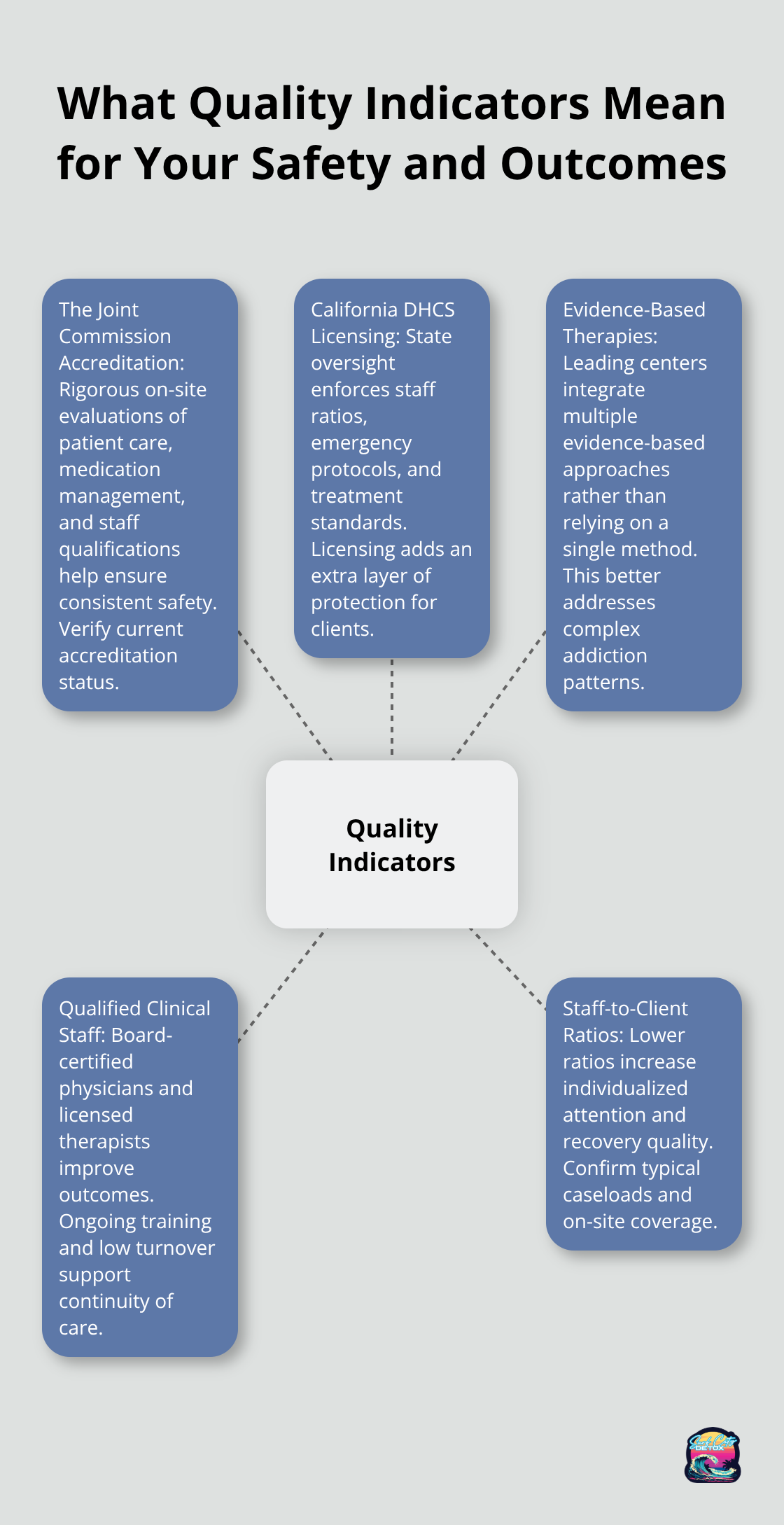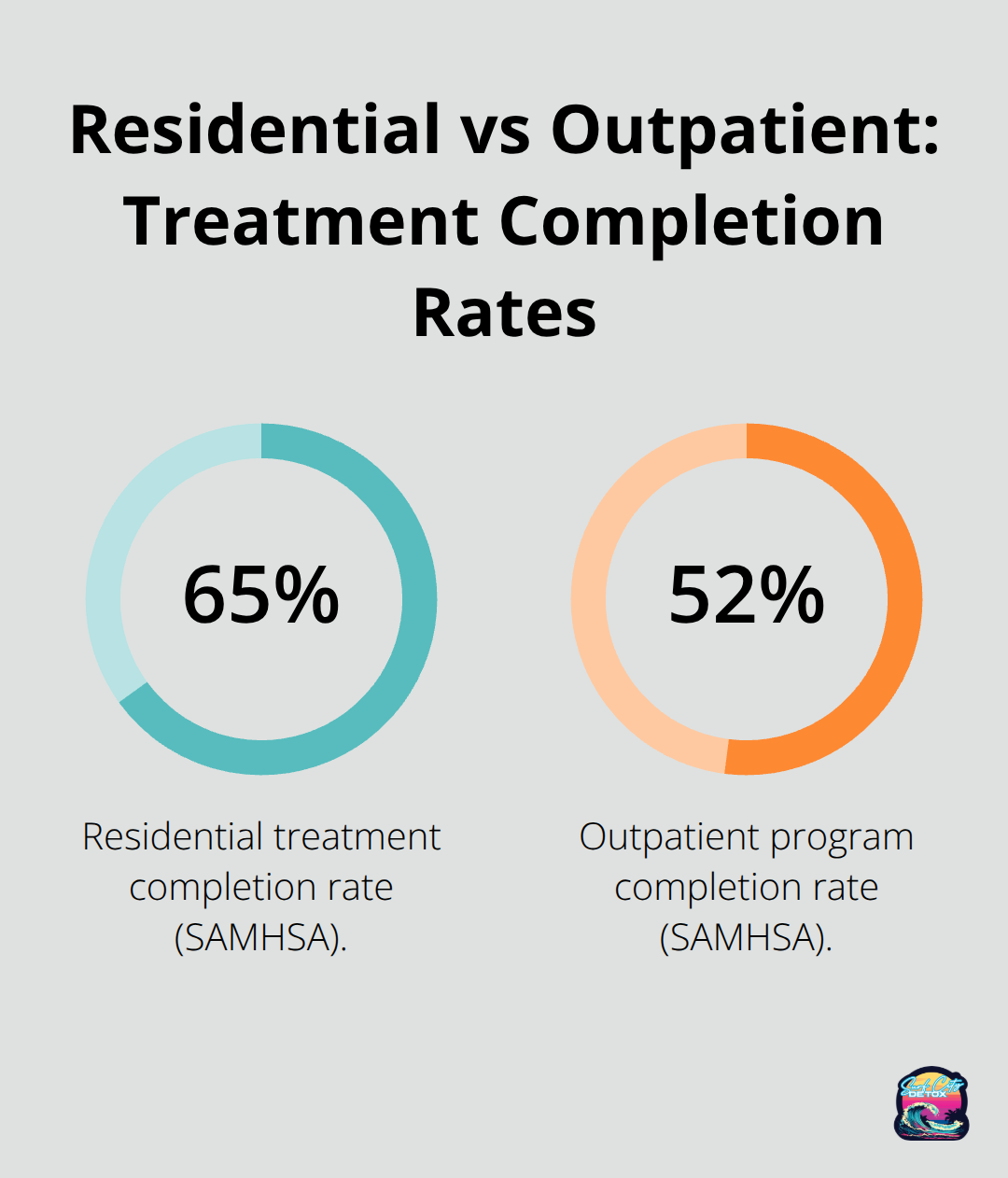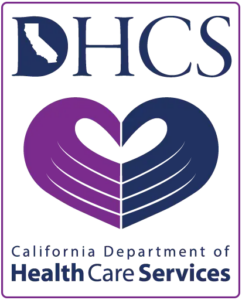Finding the right addiction treatment center can feel overwhelming when you’re ready to take that important step toward recovery.
Orange County offers numerous addiction treatment centers, each with different approaches and specialties. We at Surf City Detox understand how challenging this decision can be for you and your family.
This guide will help you evaluate your options and make an informed choice that supports your path to lasting sobriety.
What to Look for in an Orange County Treatment Center
Your choice of treatment center will directly impact your recovery success, so you need to understand quality indicators. The Joint Commission accreditation stands as the gold standard for addiction treatment facilities, with accredited centers providing measurable benefits according to recent healthcare data. California Department of Health Care Services licensing provides another layer of protection and requires facilities to meet strict operational and clinical standards. These credentials signal that a center maintains proper safety protocols and clinical excellence.
Accreditation and Licensing Requirements
Quality treatment centers hold multiple certifications that protect your safety and treatment outcomes. The Joint Commission evaluates facilities on patient care, medication management, and staff qualifications through rigorous on-site inspections. State licensing through California’s Department of Health Care Services requires centers to maintain specific staff ratios, emergency protocols, and treatment standards. Centers without proper accreditation often lack oversight and may compromise your recovery progress. You should verify these credentials before making any treatment decisions.

Evidence-Based Treatment Approaches
Effective treatment centers must offer proven therapies backed by scientific research. Cognitive Behavioral Therapy and Dialectical Behavior Therapy show success rates above 60% for substance use disorders according to the National Institute on Drug Abuse. Medically supervised detox with 24/7 supervision reduces complications by 85% compared to unsupervised withdrawal. Programs that address trauma alongside addiction achieve 40% better long-term outcomes than addiction-only treatment. Quality centers integrate multiple evidence-based approaches rather than rely on single methods (which often fail to address complex addiction patterns).
Staff Qualifications and Experience
Board-certified addiction physicians and licensed clinical staff make measurable differences in treatment outcomes. Facilities with master’s-level therapists report 30% lower relapse rates within the first year. Staff-to-client ratios directly impact the quality of recovery and individualized attention that larger facilities cannot provide. Many effective treatment teams include counselors with personal recovery experience, which creates authentic connections that enhance therapeutic relationships. Quality centers invest in ongoing staff training and maintain low turnover rates (ensuring consistent care throughout your treatment).
These quality indicators will help you evaluate different programs, but you also need to understand the specific treatment options available in Orange County.
Orange County Treatment Center Options
Orange County offers distinct treatment pathways, but inpatient residential programs deliver superior outcomes for most people who face addiction. The Substance Abuse and Mental Health Services Administration reports that residential treatment achieves 65% completion rates compared to 52% for outpatient programs. Inpatient care provides 24/7 medical supervision, removes environmental triggers, and creates intensive therapeutic focus that outpatient programs cannot match.
Outpatient programs work for people with strong support systems and less severe addictions, but most individuals benefit from the structure and immersion that residential treatment provides.
Inpatient vs Outpatient Programs
Residential programs eliminate access to substances and toxic relationships that fuel addiction cycles. The National Institute on Drug Abuse found that relapse rates for substance use disorders range from 40-60%. Orange County residential centers average 30-60 day programs, though complex cases require longer stays.
Medical supervision during residential treatment prevents dangerous withdrawal complications and addresses co-occurring health issues. Group therapy in residential settings creates peer accountability that outpatient programs struggle to replicate (due to limited contact hours and external distractions).

Outpatient treatment allows people to maintain work and family responsibilities while attending therapy sessions. However, exposure to previous environments and triggers often undermines recovery progress for those with severe addictions.
Specialized Programs for Different Substances
Opioid addiction requires medically supervised detox due to severe withdrawal symptoms and high overdose risk. Fentanyl caused 83% of opioid deaths in California between 2019 and 2021, which makes specialized opioid programs essential for safety. These programs use medication-assisted treatment and extended monitoring protocols.
Alcohol withdrawal can cause life-threatening seizures that require medical monitoring only qualified centers provide. Methamphetamine addiction needs longer treatment periods due to brain chemistry changes that take months to heal. Centers that offer generic addiction treatment fail to address the specific medical and psychological needs of different substances.
Quality programs tailor medication protocols, therapy approaches, and duration based on your primary substance and usage patterns (rather than applying one-size-fits-all methods).
Dual Diagnosis Treatment Availability
Mental health disorders occur alongside addiction in over 50% of cases, yet many treatment centers ignore this connection. Dual diagnosis programs treat both conditions simultaneously through integrated care plans. Anxiety, depression, PTSD, and bipolar disorder often drive substance use as self-medication attempts.
Centers without dual diagnosis capabilities discharge clients with untreated mental health issues that frequently trigger relapse. Integrated treatment reduces relapse rates by 40% compared to addiction-only programs. These specialized programs require licensed mental health professionals and psychiatric services.
The questions you ask during your evaluation process will reveal whether centers truly offer comprehensive dual diagnosis care or simply claim they do.
Questions to Ask When Evaluating Treatment Centers
Your questions during facility evaluation will reveal the quality and suitability of each program for your specific needs. Insurance verification ranks as the most practical starting point since treatment costs can be substantial for residential programs. Most centers accept major insurance plans, but coverage varies dramatically between basic and comprehensive benefits. You need specific information about deductibles, copays, and excluded services before admission. Centers that provide transparent cost breakdowns and dedicated insurance specialists demonstrate commitment to financial accessibility.
Insurance Coverage and Financial Options
Quality treatment centers employ full-time insurance verification specialists who can determine your exact coverage within 24 hours. Private insurance typically covers 70-90% of residential treatment costs, while Medicaid coverage varies by state and facility participation. Centers that accept multiple insurance plans offer more flexibility, but you should verify that your specific plan covers their services. Some facilities require upfront payments despite insurance approval, which creates unnecessary financial strain. Ask about payment plans, sliding scale fees, and financial assistance programs that can bridge coverage gaps. Centers with transparent practices will provide written estimates and explain all potential costs before treatment begins.

Treatment Structure and Daily Schedule
Effective programs operate structured daily schedules with 6-8 hours of therapeutic activities that include individual therapy, group sessions, and educational programs. Quality centers limit group sizes to 8-12 participants to maintain therapeutic effectiveness and personal attention. You should receive specific information about therapy types, frequency of individual sessions, and medical supervision protocols. Programs that cannot provide detailed schedules or specific therapy descriptions often lack clinical rigor. Ask about weekend programs since many lower-quality centers reduce services on weekends despite full rates (which compromises treatment continuity).
Aftercare and Long-Term Support
Aftercare plans should begin during your first week of treatment, not at discharge. Research shows that many people experience relapse, which makes ongoing support essential for sustained recovery. Quality centers provide alumni programs, continued therapy options, and relapse prevention resources that extend beyond initial treatment. You need specific information about support group facilitation, ongoing therapy availability, and crisis intervention protocols. Centers without comprehensive aftercare programs abandon clients at their most vulnerable transition period (when relapse risk peaks).
Final Thoughts
Your choice among addiction treatment centers in Orange County should focus on accreditation, evidence-based therapies, and comprehensive dual diagnosis care. These factors directly impact your recovery success and long-term sobriety outcomes. Professional treatment provides the medical supervision, therapeutic support, and structured environment necessary for lasting change.
We at Surf City Detox understand the challenges you face when you choose treatment. Our Huntington Beach facility offers medically supervised detox, residential treatment, and dual diagnosis care under one roof. We hold accreditation from The Joint Commission and maintain California Department of Health Care Services licensing (which provides the clinical excellence and safety you deserve). Our intimate setting allows for personalized attention that larger facilities cannot provide.
Recovery becomes possible when you have the right support system. Our experienced team addresses not only your addiction but also underlying trauma and mental health issues that fuel substance use. Contact Surf City Detox today to begin your journey toward lasting sobriety and wellness.



